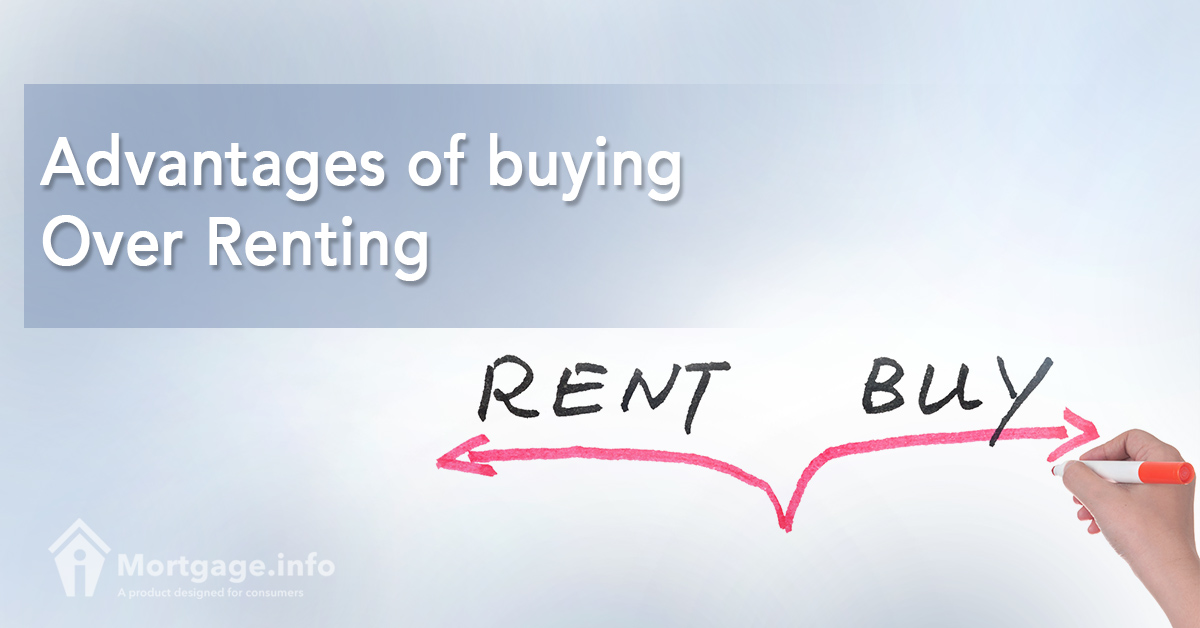
Buy or rent? That is always the largest burning question anyone wonders when they are in the market for a new home. Should you rent and save the money it costs to purchase a home or should you buy and stop paying someone else’s mortgage? There are pros and cons to each situation, but typically, purchasing a home is the better choice, even for those that think they could never become homeowners because they cannot qualify for a mortgage. Today’s mortgage industry has lightened up, giving a lot more people access to a mortgage than ever possible. Here are the benefits of buying rather than renting a home.
Why Buying Over Renting?
Perhaps the largest benefit is the investment you have in your home. When you purchase a home, you build up equity. This equity is equal to a cash investment. If you really needed to, you could tap into that equity and take it out, but generally, it is best to leave it there until you sell. Because the equity builds upon itself as you pay your mortgage down, you do not have to do anything special to see a return on your investment with the exception of paying your mortgage on time. Even though it might seem like it will be eons before you are able to see your equity, you make gains on it every single month. In the beginning of your mortgage term, a majority of your loan payment goes towards interest, but a small fraction does touch the principal. This means starting in month one you are investing in yourself and the further you get into the term of the loan, the more principal you pay down. This means the more you have invested in your home.
You can Increase your Investment
Believe it or not, you have some say in how your investment goes in your home. If you want to increase the value of your home, you can invest in repairs and remodeling. It is best to talk to someone in the industry that understands how various changes can impact the value of your home before starting, but most changes have a positive impact on a home, especially if you are enhancing the curb appeal or increasing the living space. Even small changes, such as changing the flooring or repairing a faulty patio can have a positive impact on the value of your home, instantaneously increasing the value of your investment.
Tax Write-offs
You might not like paying interest on your loan, but at the end of the year you can write it off as a tax deduction. This is not an option when you rent as you are not directly paying any interest; you are helping the homeowner pay the interest and take the tax deduction. This deduction might not have a really large impact on your tax liability, but every little bit helps! When you rent, you write the check to the landlord and that is it; you do not see any type of deductions or return on your investment with the exception of having a place to live.
Do what you Want
Owning a home means making whatever changes you desire. If you rent, you usually have to get the approval of the landlord to make any changes and anything that is allowed is usually minimal. When you buy a home, you can knock down walls, change flooring, add rooms, or make any other cosmetic and/or structural changes you desire. This can help you make your home exactly what you want it to be and can even save you money in the long run. When you rent, you are forced to deal with the layout and amount of room the home provides, which could mean living uncomfortably or constantly making purchases to make the home seem more doable for your family situation. Oftentimes this also means moving from house to house to find the one that fits your family’s needs at the time.
Build your Credit
Believe it or not, having a mortgage can greatly enhance your credit. Whether you already had a decent credit score or you struggle and had to take a subprime mortgage, having a mortgage can really help you out. If you make your payments on time every month, your credit score will react positively. Payment history accounts for 35% of your credit score, which means if you make your mortgage payments on time every month, you give your credit score a great chance at improving every month, assuming you make your other payments on time as well. If you choose to rent, the payments do not get reported to the credit bureau and therefore have no impact on your credit score.
Owning a home obviously has its disadvantages including the need to pay the real estate taxes, pay for repairs, and the high upfront costs, but the advantages greatly outweigh these issues. Because of the availability of mortgage programs today for people in different types of situations, it is beneficial for everyone to explore the option of becoming a homeowner. Even if you will only stay in the home for the short-term, you could see a great return on your investment, allowing you to continually purchase new homes when you move, eliminating the need to waste money on rent month after month.
